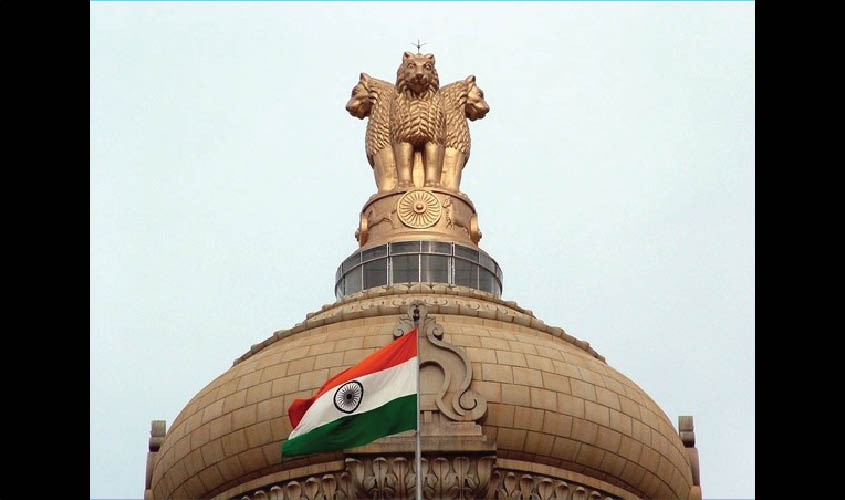The Hindu nationalist viewpoint has been demonised by drawing outlandish parallels to Nazism and excluded from the columns of mainstream media.
Intolerance is the predominant political cuss word of our current times; a lightning rod that invites sharp rebuke and an acerbic invective that instantly labels one as authoritarian. Once again, the Narendra Modi regime stands castigated as despotic, post the decision of the Airport Authority of India to defer a concert on 17 November in which noted Carnatic vocalist and trenchant Modi critic T.M. Krishna was to participate. Valid or not, this controversy makes it imperative to scrutinise this bogey of intolerance that has been raised repeatedly (remember the high decibel protest engineered by Sahitya Akademi awardees in 2015?) for its authenticity or duplicity.
This exercise is all the more compelling when the people crying wolf today are the same ones who lorded over a well-organised and diabolical network of suppression in the yesteryears. For the greater part of the post-Independence era, it was fashionable to lampoon the Hindu nationalist viewpoint; a process affected by a dual strategy of vicious demonisation that drew outlandish parallels to Nazism and by outright ostracisation from the columns of mainstream media. This writer, who has been writing for over 30 years, has personal experience in this regard and with the advent of the internet era one can even provide documentation of the same
However, this intolerance remained imperceptibly below the radar, meriting little condemnation as it was deemed an “acceptable” form of intolerance, if there is any. Sustaining this campaign of suppression were two factors. One, the perpetrators were the powerful, urban elite of Indian society occupying positions of influence in the government, media and intellectual circles and two, the victims were the supposedly vernacular types—indigenous in attire and less proficient in English. Together these two factors conspired to create an unhealthy environment that simply did not allow a large number of decent folks to express their opinions for fear of being stigmatised as “communal”. And those who chose to express their opinions were effectively shut out of the national media dominated by the English-speaking press.
Editorial prerogative has been used and continues to be used as an excuse to deny nationalist advocates a space. Here is an example. A few months ago, Rajiv Malhotra, a scholarly nationalist champion—not a rabid hate monger—was denied a right to respond when concocted and exaggerated charges of plagiarism against him were freely circulated in Indian English language publications.
The editor of a well-known newspaper wrote this in reply to Rajiv Malhotra’s request for a right to respond: “The newspaper’s right to exercise its own judgment on the need to give space to a self-proclaimed impugned party, must be protected especially in a climate where frenzy is building up on social media virtually dictating an agenda of political and cultural priorities to the media, demanding compliance. We must be careful not to feed into this frenzy or to legitimise it in any way” (Hindu, 5 September 2015).
Therefore, as this instance indicates, the nationalist suffers from double jeopardy: an inability to express oneself, coupled with a lack of recourse to redress; the supposed guardian of our democracy—the media (certain sections) also doubles as an ideological crusader out to vanquish the “big bad wolf” of nationalism. The net result: the nationalist voice in the past suffered a silent death with no countervailing protest. The internet has levelled the playing ground to some extent.
Our concept of intolerance is neither absolute nor altruistic. It is a scheming tool to further one’s vested agenda. It is this arbitrary definition of intolerance that militates against conferring any gravity to the cry against intolerance, especially when it emanates from perpetrators posing as victims.
In theory, if the Krishna incident was a case of direct victimisation (the jury is still out on this) by the Modi government then it needs to be condemned. However, I have a slightly different perspective on this. At the practical level, it is payback time; a much-needed rap on the knuckle to send out a strong message to the habitual offenders of free speech that they need to move away from the “my freedom is indispensable, yours is irrelevant” attitude; a necessary change to make our democracy more robust.
Yes, the mellifluous music of Krishna must fill the air, the hectoring of the noted historian Ramachandra Guha must flow unhindered, but the writings of the commoner Vivek Gumaste must also see the light for that is the true essence of democracy; the weakest, the poorest and the least significant must have access to vocalisation. The elitist perversion of democracy where only the views of the likes of Guha prevail is an anathema to democracy and must be discarded.
I leave you with the words of the English philosopher, John Stuart Mill: “If all mankind minus one were of one opinion, and only one person were of the contrary opinion, mankind would be no more justified in silencing that one person than he, if he had the power, would be justified in silencing mankind.”
Vivek Gumaste is a US based academic and political commentator.

